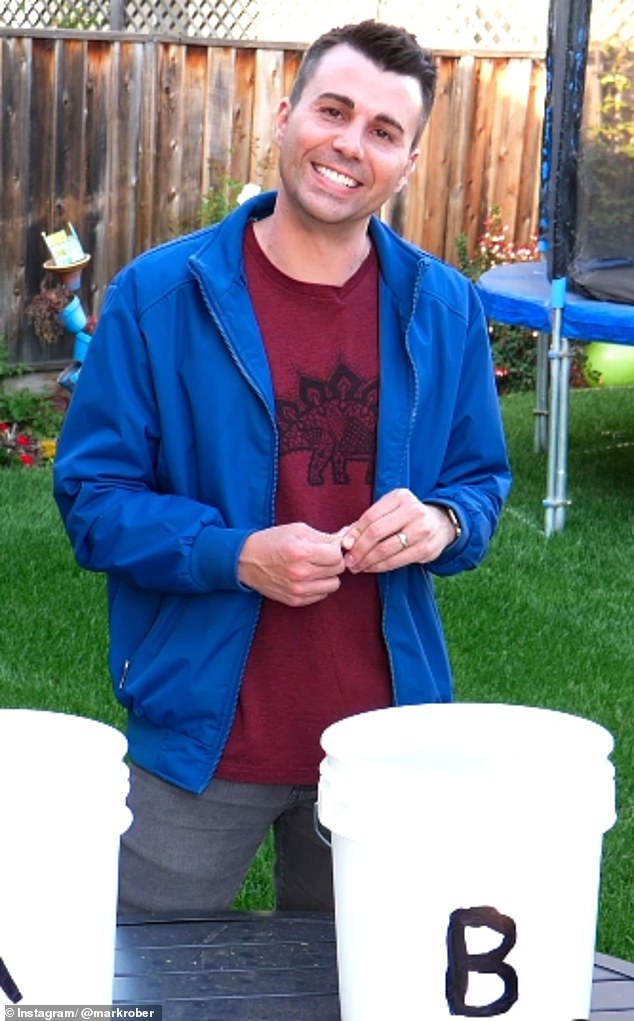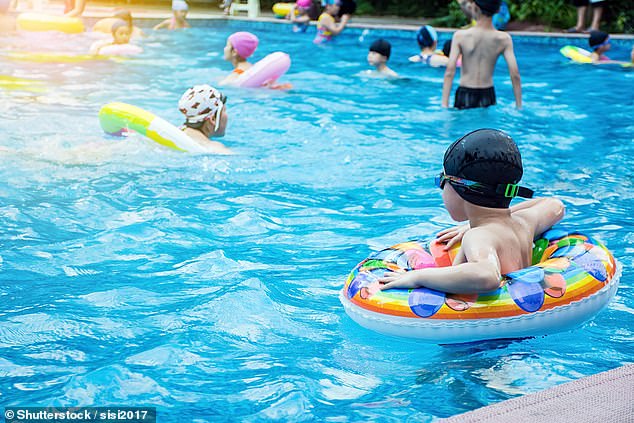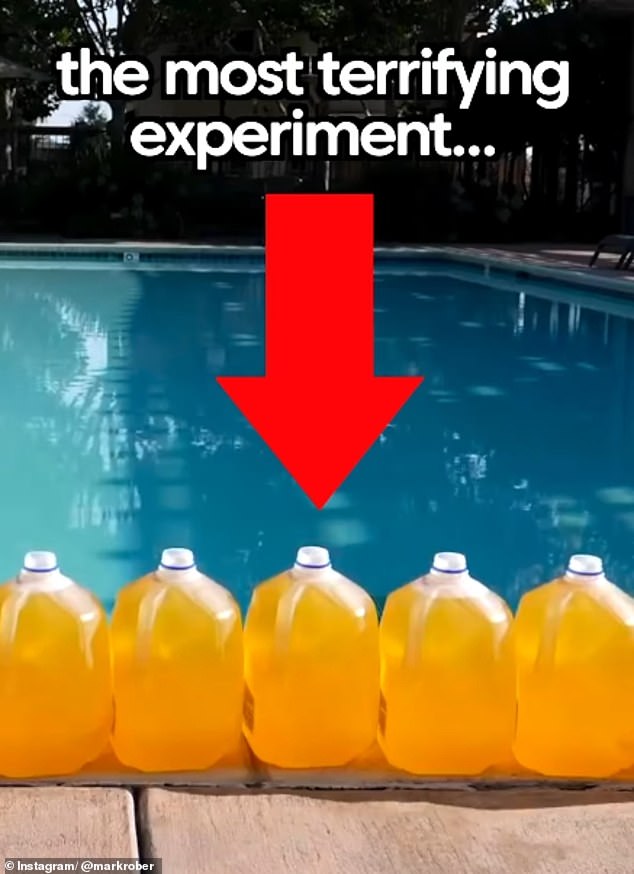The pungent smell of chlorine in your local pool can assure you that the chemicals used to kill germs and bacteria are working.
You may even find the smell “nostalgic” and feel transported to hot summer days, water parks, and even hotel pools.
But former NASA and Apple engineer Mark Rober has confirmed the reason why swimming pools smell so strong.
In what he called “the scariest experiment” he had ever conducted, Rober, 44, compared the smell of two buckets of water containing chlorine.
The only difference between the two is that one contained a drop of urine.
Former NASA and Apple engineer Mark Rober has confirmed the chilling truth about why swimming pools stink in what he has called “the scariest experiment” he has ever conducted.

In order to compare the stench between chlorinated water and chlorinated water containing urine, he added a drop of pee to bucket B.
in the viral Instagram videowhich has racked up 778,000 likes, Mr Rober filled two identical buckets, one labeled A and the other labeled B, with “pure” water.
He then added four times the recommended bleach concentration for that volume of water to both buckets.
However, in order to compare the stench between chlorinated water and chlorinated water containing urine, he added a drop of pee to bucket B.
Both buckets were covered and left to rot for 24 hours.
After a day passed, it was time to smell proof the water buckets.
Mr. Rober smelled bucket A, which only contained water and chlorine, and confessed that “it didn’t smell like anything.”
“This smells just like water, even though there is four times the recommended chlorine concentration for this volume,” he said.
But he added that the lack of chlorine smell made him “nervous” about trying Bucket B.
In the video, Mr. Rober can be seen smelling the second bucket of chlorinated water, which he admitted had that “nostalgic” pool stench.
“This smells like a swimming pool, although the only difference between these two is that this one has a little urine in it,” he said.
‘This is a nostalgic smell. This smells like summers and vacations in hotels with pools and water parks. Turns out it was just pee,” he added.

The experiment confirmed Mr. Rober’s suspicions that urine and sweat cause the chemical change in chlorine to produce that familiar pool smell.
So why do sweat and urine give chlorine a strong smell?
When chlorine is added to water, two chemicals are released that help kill waterborne germs, one is called hypochlorous acid and the other is called hypochlorite ion.
Together, these chemicals are known as “free available chlorine” and when they come into contact with sweat, oils and urine, they are reduced to form chloramines, according to the American Chemistry Council.
These chloramines are formed in pool water through the reaction of hypochlorous acid with ammonia, a component of sweat and urine.
When hypochlorous acid reacts with ammonia, three reactions can occur, each involving the replacement of hydrogen ions with chlorine ions. When one of the hydrogen ions in ammonia is replaced by chlorine, monochloramine is formed.
And replacing one more hydrogen ion with chlorine produces dichloramine, if you replace the three hydrogen ions of ammonia with chlorine, it is formed Trichloramine, also known as nitrogen trichloride.
Is Trichloramine which is responsible for the stench in the pool.
But things as simple as showering to remove sweat before getting into the pool can help minimize the formation of these chloramines and therefore reduce pong.

